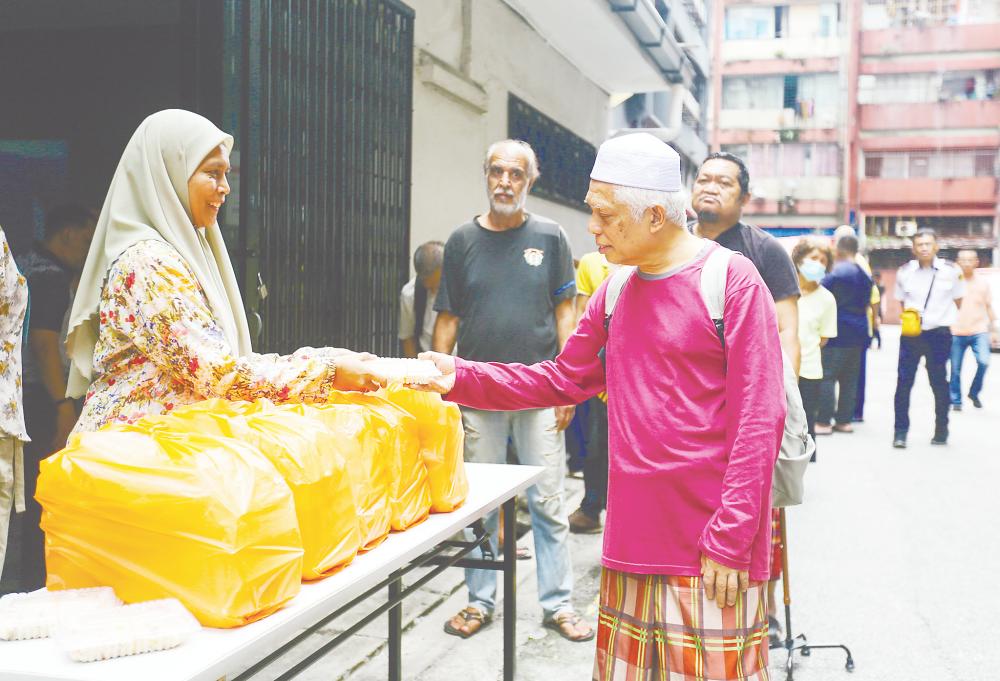KUALA LUMPUR: As a city dweller,
Dr Noralina Omar felt sad each time she noticed the homeless begging for spare change or foraging for food. But unlike many who remain passive bystanders, she felt a deep desire to help them pick up the pieces and start life afresh.
The Universiti Malaya Social Administration and Justice Department senior lecturer decided to do something for the homeless community, and in January last year, she started Singgah Teduh Nur Qaseh to provide temporary shelter and a second chance to those who have been abandoned by society.
Located in the Chow Kit area, her initiative provides temporary accommodation for up to three months, free meals, hygiene facilities and support services such as spiritual programmes for Muslim residents, psychosocial assistance and social integration programmes.
“Since 2019, I have been involved in social work, which is about ensuring the well-being of individuals, families and communities. While I educate my students, I also believe in using my knowledge and skills to make a tangible impact in society,” said the 51-year-old.
During the six years of her community work, Noralina said she and her team realised the pressing need for a safe space where the homeless could receive consistent care and guidance, which was what led to the establishment of Singgah Teduh.
“We have experienced many success stories, including homeless individuals reconnecting with their families, securing jobs or obtaining social aid. But we continue to have challenges too, such as the consistent need to secure funding for our work.
“While the Federal Territories Islamic Religious Council provides partial financial support for rent and food, we need additional funds for medical treatment, legal assistance and transport to government agencies as our volunteers often accompany residents to hospitals, the National Registration Department and court proceedings, as many lack the understanding to navigate such systems.”
Noralina added that another major challenge is changing the mindset of the homeless, as helping them is not just about providing shelter because they also struggle with deep-seated trauma, addiction or family rejection and find it difficult to reintegrate
into society.
She stressed that homelessness is usually caused by a combination of personal struggles, unemployment, societal discrimination and in some cases, substance addiction. Without proper intervention, they will remain trapped in a cycle of despair, which propagates common stereotypes about them.
“The homeless are not criminals. While the public may view them as dangerous or dirty, they are just people who have fallen through the cracks and lost their way due to circumstances beyond their control.”
Noralina said while the government has initiatives such as transit centres for the homeless, its efforts fall short of addressing long-term rehabilitation.
She said many government-run shelters are impressive but lack structured programmes that help people transition out of homelessness. Strict entry requirements also exclude many of them from receiving assistance.
Nonetheless, she remains hopeful that policy changes, such as the review of the Destitute Persons Act 1977 (revised 2006), would lead to better support systems.
“I was consulted when the Act was revised, and I hope the pending review and amendments would provide a more holistic approach to addressing homelessness,”
she said.
Noralina called on Malaysians to help uplift the homeless. Beyond monetary donations, treating them with dignity and offering jobs will go a long way in reducing their numbers, as some of them struggle to open a bank account due to past financial issues.
However, despite the challenges, she is committed to expanding her work.
“Singgah Teduh is more than a shelter. It’s a place for second chances, and with persistence, community support and compassion, we can change their lives for the better, one day at
a time.”









